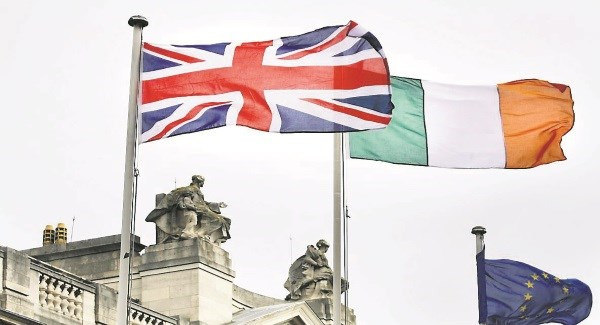By Martin Vogel

Brexit is shaping up to be the object lesson par excellence in how not to lead in complexity. First this week we have seen the Government’s negotiating strategy (if one can call it that) for getting to Phase 2 of the Brexit talks blown to pieces by its negligence of the Irish border issue. Then the Brexit Secretary, David Davis, admitted that the Government had made no assessment of the impact of Brexit on the various sectors of the economy, despite having previously insisted on several occasions that such assessments were in hand. So the Government is navigating what is the biggest peacetime challenge that the UK has faced in generations, not just with no real understanding of what its impact will be but no attempt to understand. It’s almost as if the truth would be too frightening for ministers to know.
This all flows from the way the Government has approached Brexit. From the moment she became Prime Minister, Theresa May has connived with hard line Brexiteers in the fantasy that Britain’s leaving the European Union was a simple matter demanding nothing more than technocratic determination. That it has proved to be anything but was foreseeable at the time and was foreseen.
The first error, and this was structured into the binary choice put before the electorate in the referendum, was to deny the hard choices that leaving the EU would entail. Faced with a referendum mandate the meaning of which was unclear, Theresa May chose the most uncompromising interpretation possible. At once, she closed off the only stance of leadership that makes sense when the route to your destination is not clear: flexibility, a readiness to correct course, and the mobilising of a network of talents to discern the optimal path.
Instead, by adopting the cakeist ideology of Boris Johnson – that Britain could simultaneously leave the European Union and yet still enjoy the benefits of membership – Theresa May put her the country on a crash course with reality.
The Government’s attitude throughout has been to play down the significance of potential problems. This was certainly manifest in its approach to the Irish border issue. As Henry Mance has reported in the FT, the Government never took Ireland seriously as a sovereign nation whose interests were material to how Brexit could proceed. “This Irish stuff” is not an issue that has emerged at the eleventh hour. The EU made it clear in April that progress to trade talks was contingent on clarity about how the provisions of the Good Friday Agreement would be protected. On this issue of national destiny, as Henry Mance observes, the Prime Minister “has left it to the last minute to secure an agreement that is acceptable to both the Irish government and her own parliamentary allies, the Democratic Unionist party.” The academic, Feargal Cochrane, notes that you could not design a more cataclysmic approach to negotiation if you tried:
“Start with a weak leader and a divided party, add a confused set of core objectives, agree to a text that you are not in a position to deliver on, reach an agreement with your main opponents and raise their expectations that you are primed to conclude a deal on those terms, then abandon your position at the last minute, leaving your negotiating partners dangling.”
To neutralise DUP concerns, the Government sought to imply yesterday that any softening of Brexit that would be agreed for Northern Ireland would apply to the UK as a whole – which suggests ministers are preparing for an accommodation with hard facts that they’ve strenuously tried to ignore. The Government’s mishandling of an admittedly difficult hand has led the commentator, Fintan O’Toole, to discern an interesting
inversion of the geopolitical positions of the UK and Ireland:
“If, for the first time in 800 years, Ireland is proving to be in a much stronger political position than Britain, what does that say about what Brexit is doing to Britain’s strength? It is being forced to accept what it claimed to be unacceptable, not because Ireland has suddenly become a global superpower but because it has the unflinching support of EU member states, the European parliament, and the EU negotiating team. There might be a lesson in there somewhere for a country facing a future without the allies it has long taken for granted.”
It didn’t need to be this way. Instead of sidelining the interests of the half of the population that didn’t want Brexit, Theresa May could have taken office promising to work out a Brexit that the nation as a whole could get behind. As someone who had not voted for Brexit but who had stepped up to take responsibility for implementing a divisive referendum result, she could have commanded the trust of the whole nation and mobilised a majority in the House of Commons for a pragmatic Brexit. By denying that the path to Brexit would involve hard choices she missed the opportunity to bring the nation together. As Jonathan Lis, a think tank wonk, has argued, the better thing to do would have been to level with us:
“Voters, being grownups, are capable of making tough choices – but they need first to know what they are.”
Far from putting the nation on some proud path to self-determination, Theresa May has infantilised us.
